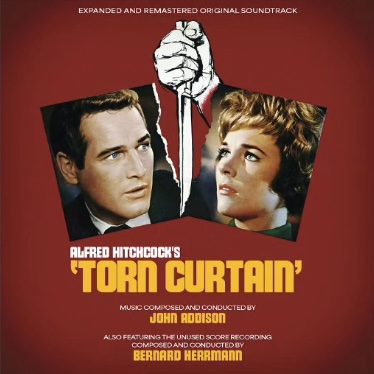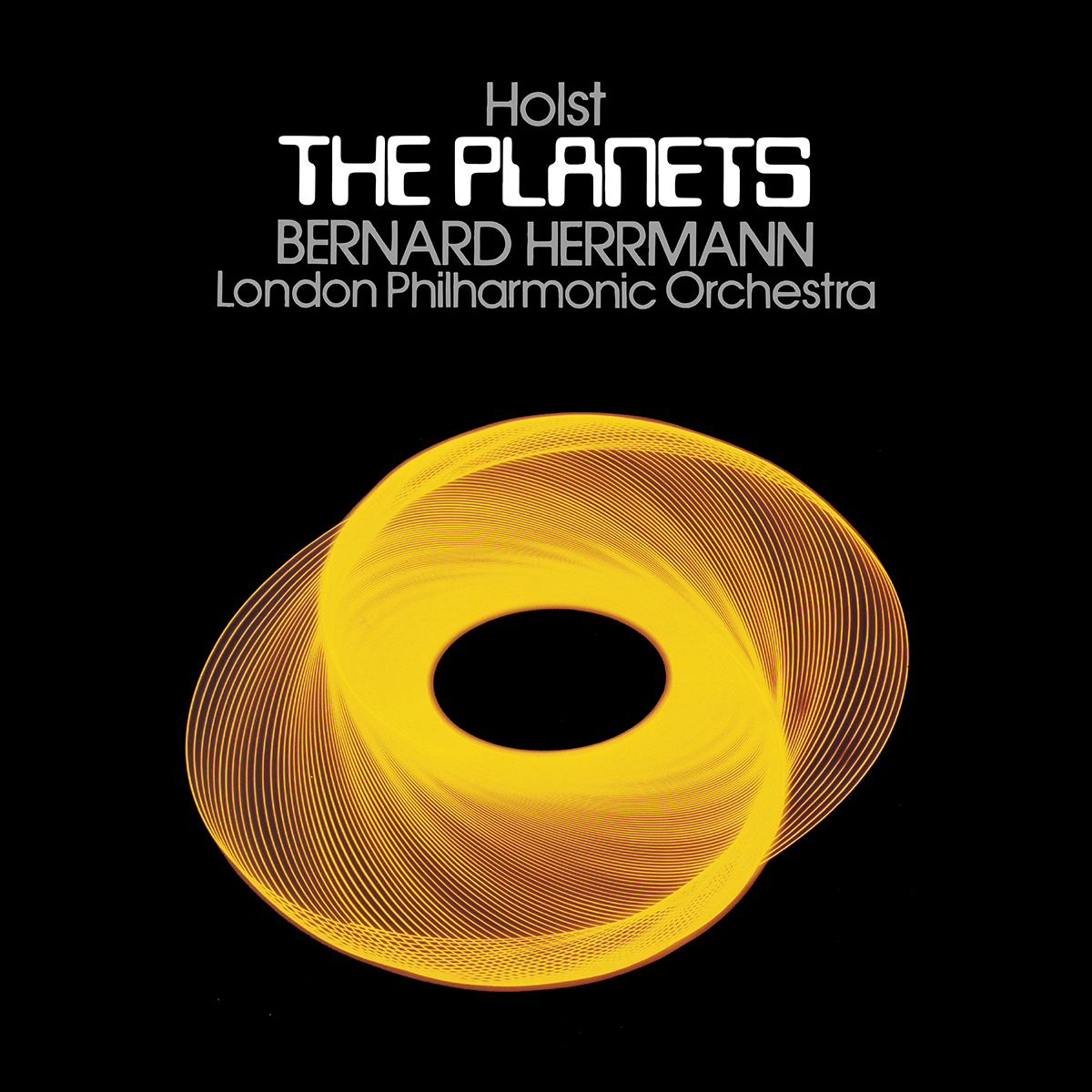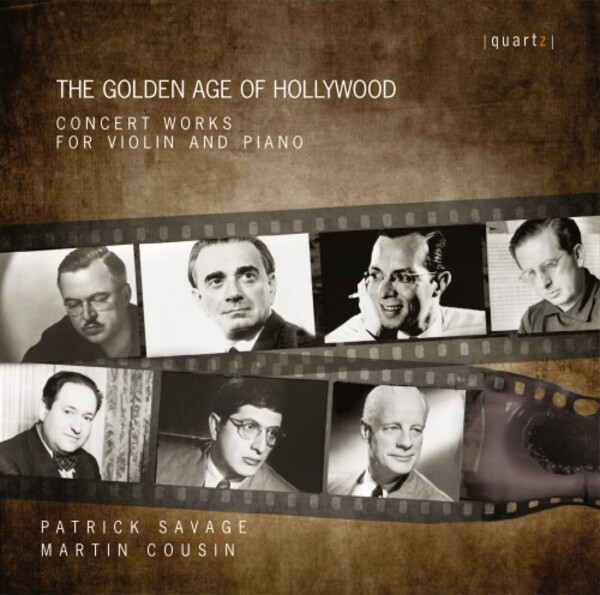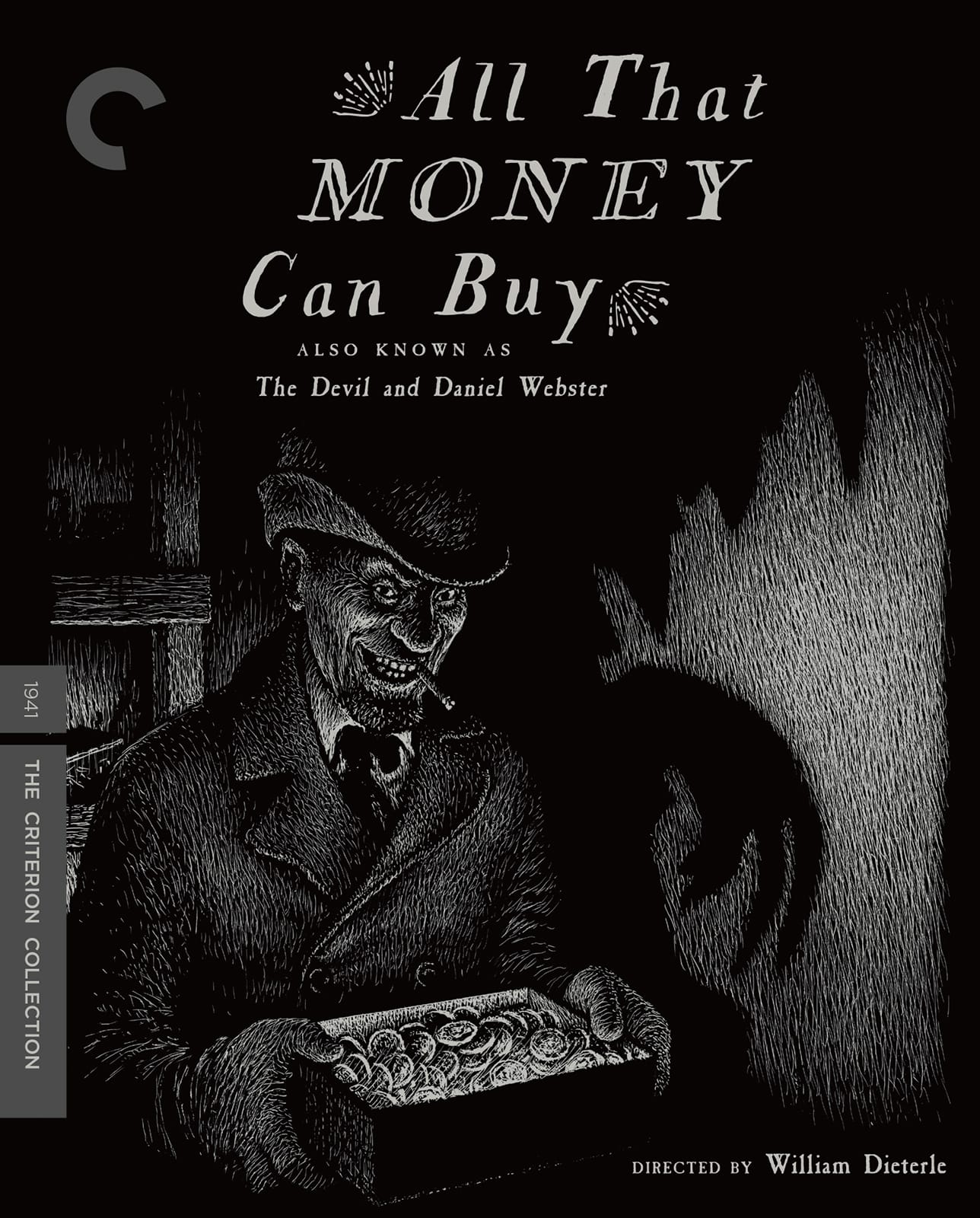Steven C. Smith: I believe you became involved with Citizen Kane after production started because Welles didn’t get along with the original editor?
Robert Wise: I don’t know that they didn’t get along. He was an older man, and I think Orson just wanted a younger person on it.
SCS: How did Bernard Herrmann strike you when you began working together?
Wise: He was bright as hell, irascible as hell, a very rounded person. He was very well read, with opinions of many subjects. [Once] he started to raise heck about something with me, and finally I just got fed up with it. I told him to go to hell and get out of the room. He said something about, if he didn’t get it straight then he’d go back to New York, and I said, “Well the hell with you – go back to New York! Who needs you?!” Half an hour later, I went to the commissary to have lunch, and there was Bernie at a table, waving me over, just as friendly as he could be. Nothing thought of it.
One thing I was terribly impressed with was his quickness and his professionalism, his ability to change things quickly on the set. I suppose this came from his experiences in radio. But in those days, it was very common for the composer to have a real lock on the edited sequence and say, “That’s it, I’ve got the timing on it.” You were not to change it, because he was going to write his music to those timings. Max Steiner, who was the top man at the time – boy, if you fooled around with a scene after Max had got the timing on it, there was all hell to pay.
Well, Orson didn’t pay much attention to that. Bernie had the timings and Orson made some changes in scenes. I tried to make a point that this would be very difficult when we got down to the set, and Orson wouldn’t hear of it.
We got to the scoring stage, and the timing was different, the film had been changed, and I was sweating. But Bernie was not at all upset. He said, “Okay, we can cut to this bar here, and pull this together…” He very quickly adjusted his music, with great judgment, to fit the changes in the sequence. I had worked with a lot of music directors before, like Max and Roy Webb, and they wouldn’t hear of a change in their music. I was so impressed with Bernie, that he didn’t bat an eyelash.
SCS: I’ve heard Welles and Herrmann’s relationship was sometimes tempestuous.
Wise: Well, on the set, it was never a very even keel with Orson for long. It was either up or down. You’d get so damn mad at him about some piece of outragoeus behavior, you’d want to tell him to go to hell – but before you could do that, he’d come up with an idea so brilliant, your mouth would be gaping open and you didn’t walk. I imagine it was the same thing with Bernie.
SCS: Herrmann also said some of Kane was cut to the music.
Wise: Not so. Only the musical number. You don’t do things that way. The only thing cut to music was the song – the sequence with the dancing girls. That had a standard playback.
SCS: Herrmann once said the final sequence was shot to a playback…
Wise: I wasn’t there for the shooting, but I don’t recall any pre-scoring being done at all. I think it’s most unlikely.
SCS: Your next collaboration with Welles was The Magnificent Ambersons. Were you involved from the beginning?
Wise: Right from the beginning. Welles wasn’t around when the picture was edited and the scoring was done. He was out in South America. So he had nothing to do with the final underscoring.
SCS: Were you present at the infamous previews, when Ambersons got terrible scores?
Wise: Of course! What does a film editor do but go to sneak previews and work on the film afterwards?
SCS: Roy Webb was brought in to write the new music, not Herrmann…
Wise: I suppose that the studio had had so many problems – the bad previews, shooting additional scenes, Roy was under contract at RKO, Herrmann was not, they were fed up with Orson…
SCS: On to a happier project – All That Money Can Buy. Why did they choose that title, by the way, over The Devil and Daniel Webster?
Wise: There was a feeling around that somehow “Devil” in the title was bad box office. They had made a picture called
The Devil and Miss Jones just before. That was not a success.
What I recall [of Herrmann's music on] that film is the effectiveness of that chase scene at the end, with just the kettledrums. Usually you’d have a big 60-piece orchestra, but he just had four or five kettledrums. It was most effective chase music.
SCS: What do you think was his greatest strength as a composer?
Wise: I think he had a special feeling for the content of a film. He was a great reader of all kinds of books – psychology, philosophy, and he was a very educated man. I think he had more than most composers a sense of the film, the characters, the story, the plot. He was able, through his great appreciation, to contribute more. To tie in to the story and the characters more closely.
SCS: Do you recall his relationship with director William Dieterle on All That Money Can Buy?
Wise: No, I don’t. Bill was a very nice man – I would imagine it was a completely different relationship than the one he had with Orson. Dieterle was bright and talented, but a rather slow, quiet, softer man.
SCS: What was Herrmann’s reaction to the film?
Wise: I think he was very, very fond of it. He liked it very much.
SCS: Whose decision was it to use Herrmann for The Day the Earth Stood Still?
Wise: It might have been the fact that he was [frequently working] at Fox. I can’t very honestly say that it was necessarily my idea. I just don’t remember.
I had always thought very highly of Benny. He was a little rough to get along with sometimes, but I had tremendous respect for his talent. I felt it was the kind of film that would intrigue him, and he would do a really oustanding job.
SCS: He didn’t have any hard feelings about the re-editing of Ambersons?
Wise: No, not as far as I know. We were very friendly during the whole scoring [of Day]. He didn’t come on until the picture was finished.
SCS: What was his reaction to the film?
Wise: He liked it very much. It was something that gave him an opportunity to do something special, something a little different than he had done, and he did just that. I thought it was a major contribution to the film.
SCS: Were you aware of the unusual instrumentation he planned to use?
Wise: Well, he talked about it some, but I didn’t quite understand all the things he was talking about. But when we got on the music stage and he started to do some of the cues, I saw what he was getting at.
SCS: I’ve heard when there was a disagreement over scoring, he could be very logical, outlining his reasons…
Wise: Oh, absolutely. He had a point of view, and he knew what he was talking about, and he was very articulate. He’d sputter a bit sometimes, but he had a reason behind everything he was doing. Anything he suggested for the film was well thought-out, well-reasoned.
SCS: Tell me more about your reaction to the cues as you heard them.
Wise: I was thrilled. I thought it was beyond anything I’d anticipated, in terms of the strange instruments…the theremins…
SCS: Did you see Herrmann again after the film?
Wise: Well, it was so funny…we had this little experience. I made, right after that, a little film called
The Captive City, a semi-documentary kind of film made on location. It was John Forsythe’s first leading role – a suspense-crime film about the Mafia in a small midwestern town. The picture, for what it was, turned out very well.
While we were editing, I ran into Bernie somewhere. I told him about the film and he said, “Oh boy, that sounds great. As a matter of fact, I’ve talked to a couple of people who’ve seen it, and they say it’s a swell little film. I’d love to score it for you.” I said, “C’mon, Bernie, we can’t afford you, it’s a little film. We’ve got a $250,000 budget.”
He kept going, because he was very enthusiastic about it, so finally I made a date – almost reluctantly – for him to come in and see me and the producer. He came in and kept making his pitch until he finally said, “Well, how much money do you HAVE in the budget for the music?”
“Bernie,” I said, “We’ve got $10,000.”
He hit the ceiling – “TEN THOUSAND DOLLARS?! HOW CAN YOU BELITTLE THE MUSICAL SCORE WITH THAT KIND OF THING?!! THAT’S OUTRAGEOUS!!”… He frothed at the mouth, he carried on for 15 minutes, and he stormed out! That was so typical. He was so insulted – not personally, but just that that’s all we had for the score!
He was a temperamental, mercurial, and very talented man.









![The Man Who Knew Too Much – 4K restoration / Blu-ray [A]](../../wp-content/uploads/2023/11/TMWKTM-4K.jpg)
![The Bride Wore Black / Blu-ray [B]](../../wp-content/uploads/2023/07/BrideWoreBlack.jpg)
![Alfred Hitchcock Classics Collection / Blu-ray [A,B]](../../wp-content/uploads/2020/07/AHClassics1.jpg)
![Endless Night (US Blu-ray) / Blu-ray [A]](../../wp-content/uploads/2020/03/EndlessNightUS.jpg)
![Endless Night (UK Blu-ray) / Blu-ray [B]](../../wp-content/uploads/2019/12/ENightBluRay.jpg)